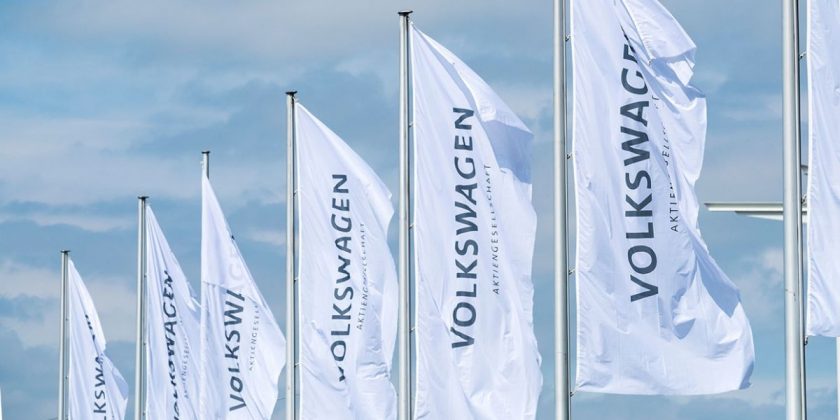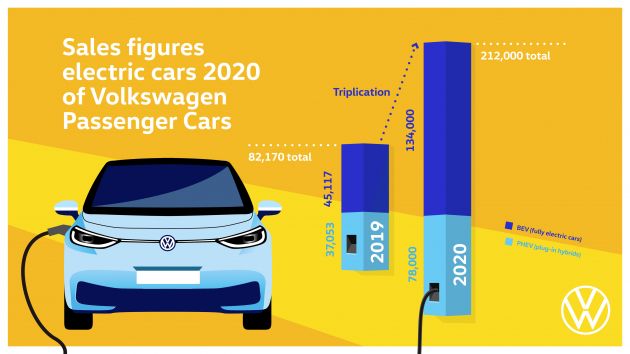The Volkswagen Group has announced its sales results for 2020, which saw a total of 9,305,400 vehicles sold worldwide. This represents a 15.2% year-on-year decrease from 10,975,300 vehicles delivered in 2019, largely due to the Covid-19 pandemic that affected both sales and production.
“The Covid-19 pandemic made 2020 an extremely challenging year. The Volkswagen Group performed well in this environment and strengthened its market position,” said Christian Dahlheim, head of sales at Volkswagen Group.
“We are particularly pleased that we hit the ground running in our e-offensive in spite of the pandemic and thus took a big step forward in the implementation of our Together 2025+ strategy. We will keep up the momentum this year, adding many more attractive electric models,” he added.
The Volkswagen Group is made up of several brands, including Volkswagen Passenger Cars, Audi, Skoda, Seat, Porsche, Bentley, Lamborghini, Bugatti, as well as those linked to commercial vehicles like Volkswagen Commercial Vehicles, MAN and Scania. Every single one saw a decline in sales compared to 2019, some as much as -27.5%.
Despite the negative deltas, there are some encouraging highlights from last year’s performance, as deliveries of all-electric vehicles increased by 214% to 231,600 units from 73,700 units in 2019. Meanwhile, plug-in hybrid also jumped 175% to 190,500 units from 69,200 units in 2019.
The bulk of electrified vehicles delivered were from Volkswagen Passenger Cars, which saw 134,000 EVs sold last year from just 45,117 units in 2019. As for PHEVs, it’s 78,000 units in 2020 from 37,053 units in 2019. Volkswagen Passenger Cars launched nine new fully electric and plug-in hybrid models in 2020, with the ID.3 (56,500 units) and Passat GTE (27,200 units) being the best sellers in their respective categories.
Across the entire Volkswagen Group, the e-tron was the second best-selling EV with 47,300 units, followed by the e-Golf (41,300 units), e-up! (22,200 units) and Taycan (20,000 units). On the PHEV side, the Q5 occupied the second spot with 23,500 units, while the Cayenne (21,500 units) came in third, the Superb (16,400 units) in fourth and the Golf (15,200 units) in fifth.
Every region that Volkswagen Group has a presence in also saw declines compared to 2019, with the most significant being in Western Europe, where 2,939,900 cars were delivered last year compared to 3,747,600 units in 2019 – a 21.6% decrease.
It’s the same case for Central and Eastern Europe (-15.6%), North America (-17.4%), South America (-19.5%), China and Hong Kong (-9.1%), the rest of Asia-Pacific (-9%) as well as the Middle East and Africa (-12.3%).
Research Volkswagen Cars at
Related Cars for Sale on
Source: Read Full Article


















